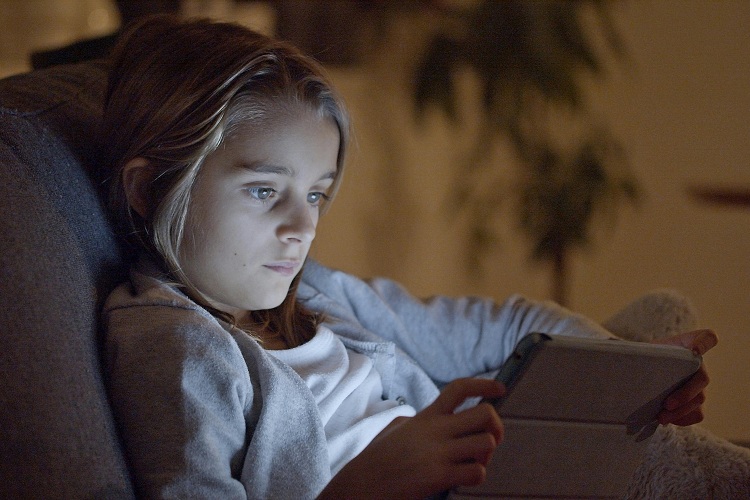“Learn the dangers of excessive screen time for kids and discover 10 proven tips to reduce it, improve health, and encourage balanced habits.”
The Excessive Screen-Time Saga: A 21st-Century Conundrum

Let’s be realistic here: negotiating kids’ excessive screen time can be like negotiating with a tiny tech-proficient lawyer. But this is not just about tantrums over YouTube or Fortnite; too much time on screens has real impacts.
The Stats Don’t Lie
A 2023 study from the American Academy of Pediatrics found that, on average, children ages 8-12 spend 4-6 hours a day on screens, and teens an average of over 7 hours a day. And no, this doesn’t count school-related activities.
According to the World Health Organization, children younger than 5 should engage in no more than 1 hour of recreational screen time each day. Let’s be honest: we’re all significantly falling short of this recommendation.
The Hidden Dangers of Too Much Screen Time

Missed playdates and late homework assignments are not the only consequences of excessive screen time. Here’s a look at the hidden risks:
Brain Drain
Excess screen time impacts brain development, especially in children under 6. Research indicates it can hinder cognitive development, memory retention, and critical thinking. It’s as if their brains are being fed junk food instead of proper nutrition.
Sleep Struggles
That blue light from the screens suppresses the sleep hormone melatonin; restless nights lead to cranky mornings. Been there, done that, right?
Emotional Roller Coasters
A 2022 study from the University of Calgary discovered a correlation between children’s increased screen time and higher levels of anxiety and depression.
Eye Health Issues
Heard of digital eye strain, though? Children staring at screens for hours will obviously dry their eyes, making vision blurry, and they will get a headache. Fun fact: Their eyes don’t fully develop until their late teens, making them particularly sensitive to extended screen time.
Physical Inactivity
Excessive screen time often lead to sitting, and sitting leads to less physical activity. Add snack time during binge-watching on top of that, and you have a perfect formula for growing childhood obesity rates.
My Story: When My Kid Turned into a Screen Zombie
Here’s a confession: I’ve bribed my daughter (for 30 minutes of tablet time) to get 10 minutes of coffee uninterrupted. What was supposed to be 30 minutes became 3 hours. Before I realized it, she was requesting the tablet before breakfast!
My daughter’s preference for mimicking a cartoon character over me was a stark realization. That’s when I realized I needed to get her attention back—and our family time.
10 effective ways to reduce kids’ excessive screen time

Here comes the excellent stuff!
Set clear screen time rules.
Follow the 20-20-20 rule: After every 20 minutes staring at a computer screen, look somewhere 20 feet away for 20 seconds. Bonus: It’s beneficial for their eyes and serves as a mental reset!
Create a Screen-Free Zone
Create no-screen zones in bedrooms and dining areas. Honestly, family dinners are much more fun when everyone’s chatting instead of scrolling.
Model Healthy Habits
Monkey see; monkey do! If you’re always looking things up on your phone, so will your children. Glorify the moment by removing your own phone first—we all need baby steps!
Plan Fun Alternatives
Introduce your kids to the fun of board games, puzzles, or the wonderful outdoors. Remember hopscotch or hide-and-seek? Those are still cool!
Use apps wisely.
Surprisingly, certain applications have the ability to reduce screen time. Services such as Google Family Link or Apple Screen Time can impose daily limits and monitor usage.
Encourage Hobbies
Whether it’s drawing, baking, or creating masterpieces with LEGOs, hobbies can keep those little hands busy and off screens.
Schedule Screen Time
Decide on a time for screens. Allow, say, 30 minutes after homework or chores, for instance. Pro tip: Call it “tech time,” and it sounds special.
Have Tech-Free Days
Pick one day a week to not use tech. It may sound radical, but it can be a game changer for family bonding.
Reward Non-Screen Activities
Rather than punishing excess screen time, reward your kids for engaging in activities not related to a screen. A sticker chart or an extra 15 minutes of playtime can work wonders.
Lead by storytelling.
Tell your kids stories about how too much screen stuff can mess up their lives when they get older. It’s not giving them a scare—it’s giving them inspiration to achieve balance.
Interactive Feature: Screen-Time Challenge!
Here’s a thrilling challenge for your family:
- Step 1: Keep track of your screen time for a week.
- Step 2: Find out where you can scale back.
- Step 3: Use the time you just saved for something fun together—a movie night (on a TV, not a tablet!) or a family walk.
The Humor Side
We have all experienced that moment, such as when a four-year-old destroys you in Angry Birds and proclaims, “I am the new boss!” While screens are impressive, they cannot match the impact of a well-timed dad joke or a mother’s skillful storytelling.
Ode in Unison: Do it now, and do it for the first time!
Raising kids in a digital world can be daunting, but the challenge lies within you. Start small—pick one of the tips and try it out this week. Have successes or struggles to share? Let us know in the comments below. Join us as we learn from each other and reclaim our family time!
Conclusion: Excessive Screen Time
Screens are a permanent part of our lives, but they don’t have to be your kids’ whole life. With some creativity, patience, and humor, you can straddle a healthier balance that works for the household.
Read this also, related to this article: https://lifehacksify.com/sleep-in-the-age-of-screens-connection-between-technology-and-insomnia/

